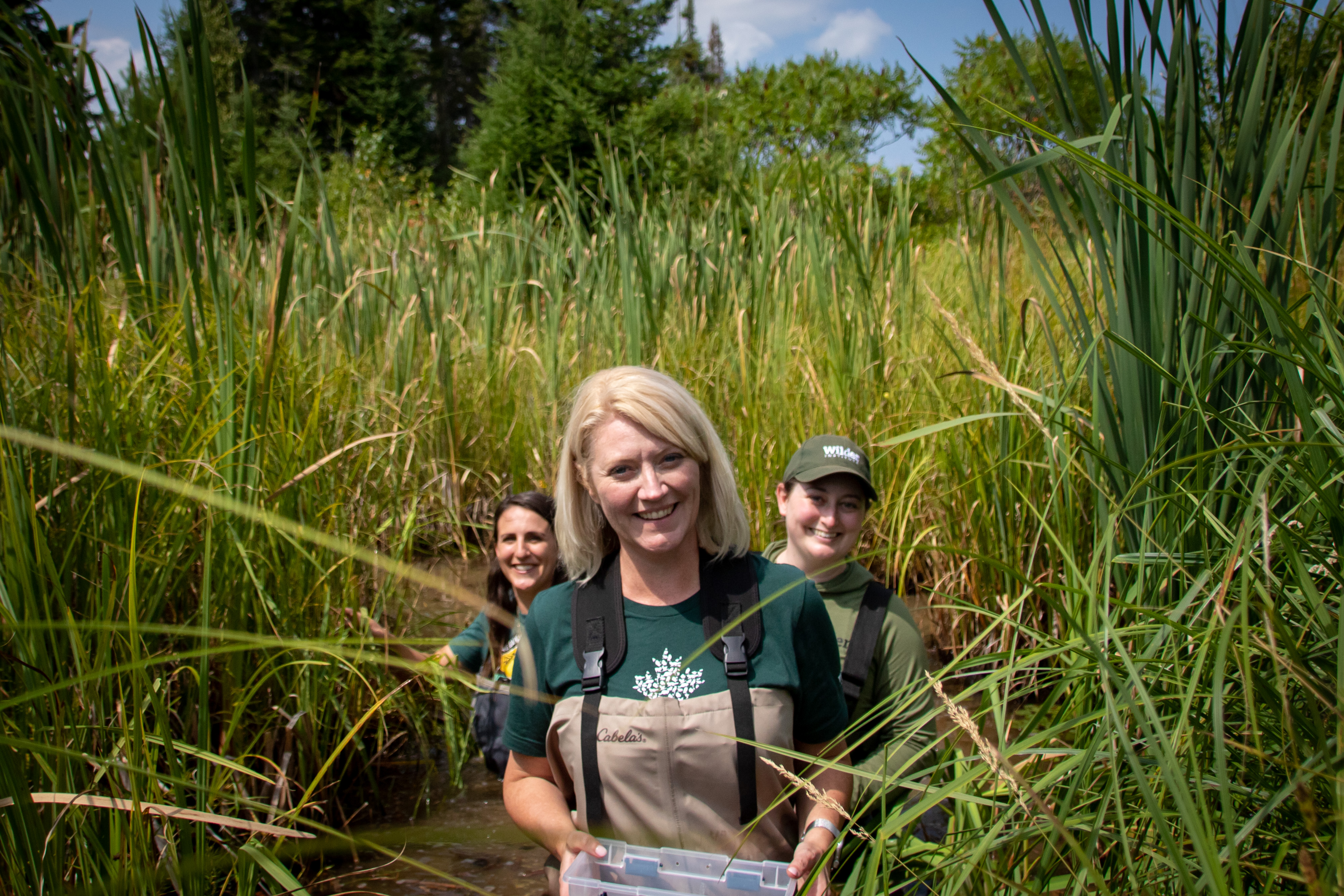Making Canada Wilder: Why Protecting Nature Protects Us All
OBOT Member Blog Post
By Dr. Gráinne McCabe, Chief Conservation Officer, Wilder Institute
I’ve always believed that nature has a way of grounding us. It slows our racing thoughts, clears the fog of daily life, and reconnects us to what really matters. Nowhere is that truer than here in Canada.
Whether I’m walking a forest trail with autumn leaves crunching underfoot, canoeing down a river as eagles call in the distance, or sitting beside a still mountain lake that mirrors the vast landscape around me, I’ve found that Canada’s wild places don’t just surround you - they speak to you. They remind you to breathe deeply, to notice, to feel your connection to something larger than yourself.
Wildlife here is not just something to observe - it teaches us. About balance. About resilience. About taking only what we need and giving back when we can. It reminds us that we are one small part of an intricate and interdependent world.
That’s why protecting nature matters. It’s not simply about land, water, or animals. It’s about preserving a relationship with the natural world that supports our well-being, health, and sense of belonging.
This summer, I had the privilege of releasing two painted turtle hatchlings into a wetland in Ontario stewarded in partnership with Magnetawan First Nation. The turtles were no bigger than a toonie. Yet as they slid from my hands into the safety of the reeds, time seemed to slow. The bird calls grew sharper, the insect hums louder, the sun warmer on my skin. And with it came a wave of hope - that the future of these tiny creatures, and their species, was just a little brighter.
That wetland, like so many across this country, is more than just a picturesque scene. It is a living system that cleans our air, filters our water, provides refuge for wildlife, and offers humans a place for reflection and renewal. Protecting such places preserves the conditions that make life possible - for all of us.
And yet, the reality is sobering: Canada’s wilderness is under pressure. Habitat loss, climate change, and unsustainable development are steadily eroding the very systems we rely on. It is easy to feel that these problems are too big for any one of us to make a difference.
But here’s the truth: conservation is not the work of a few. It is the responsibility of us all. Every person has the power to play a part - by supporting protected areas, making sustainable choices, advocating for policies that prioritize nature, or simply helping nurture a love of the wild in the next generation.

Wilder Institute Chief Conservation Officer, Dr. Gráinne McCabe (in front) with midland painted turtle hatchlings.
At the Wilder Institute, we believe in harnessing that collective power. We act for wildlife - through weaving science-based conservation with traditional and local knowledge, community partnerships, and education that inspires people to become stewards themselves. But this work is not ours alone. We need voices from every corner of society to help champion the idea that protecting nature is not a luxury- it’s a necessity.
The Wilder Institute’s Wilder Canada Action Plan is our national framework for driving inclusive, multi-species conservation strategies. It focuses on targeted conservation translocations aimed at restoring at-risk species in partnership with communities across the country. Its goals are clear: to protect biodiversity, build conservation capacity across society, and mobilize people to safeguard Canada’s wildlife and wild places. It’s about taking action that is deliberate, evidence-based, and rooted in collaboration - because conservation works best when everyone is involved.
To advance this conversation, we are proud to host the Wilder Voices Speaker Series. This series brings together conservation experts, storytellers, and engaged Canadians to explore the most pressing issues in wildlife conservation. In 2025, acclaimed science communicator and The Nature of Things host Anthony Morgan will join us for events in Ottawa, Brandon, and Vancouver this October.
Through these discussions, we are reminded of a simple truth: in safeguarding nature, we are also safeguarding ourselves. Protecting forests means cleaner air. Protecting wetlands means fewer floods and cleaner water. Protecting wildlife means healthier, more resilient ecosystems that sustain us.
In a world that is growing faster, louder, and more artificial every day, Canada’s wilderness calls us back to what is real. To what is wild. To what is worth protecting.
When I released those tiny turtles into the wetland, I was reminded of how much hope can rest in small beginnings. Conservation is not about single grand gestures - it is about millions of small actions, woven together into something powerful enough to shift the course of the future.
Together, we can all be conservationists. Together, we can keep Canada’s wild places alive. Together, we can make Canada Wilder.
